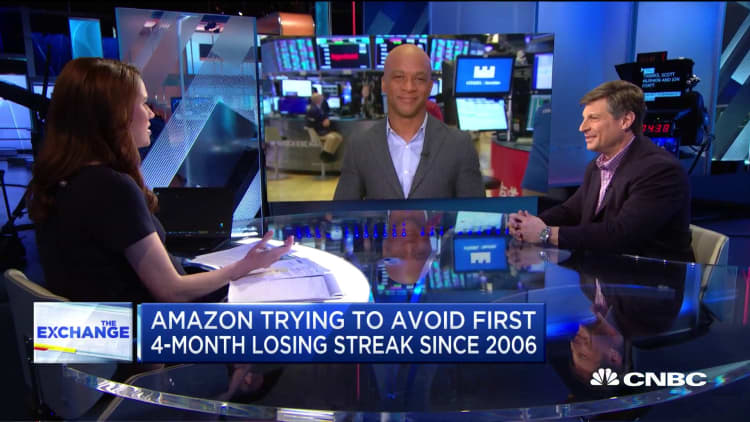Getting mass distribution on the shelves of huge retailers may not be the best way forward for new consumer-goods brands, according to the co-founder of a new venture capital (VC) business The Craftory.
Elio Leoni Sceti, a former Reckitt Benckiser and Procter & Gamble executive, founded the company in May 2018, and its website describes it as "counter-corporate and anti-traditional VC," with a focus on cause-driven consumer goods.
It invests in "challenger" companies that have at least $10 million in sales, aiming to grow them to $100 million-plus, but Leoni Sceti advises against doing deals with large retailers, for fear of compromising their standards, being pushed to reduce their selling prices, or being squashed by brands owned by the large consumer-goods companies.
"We think that the moment that somebody wants to go on (the) Tesco shelf (for example), very often is the beginning of the end. And the reason is very simple, which is that in consumer goods, the big guys, the big companies are setting the agenda of what's on shelf," Leoni Sceti told CNBC last week.
If a smaller brand that uses ingredients that are in limited supply gets a listing at a large store, for example, it may have to cut back or replace that ingredient to be able to compete on price, he said. Writing on The Craftory's website, co-founder Ernesto Schmitt stated: "It's hard to be the champion of healthy nutrition when you're one bottle facing against 75 Coca-Colas on the shelf, whereas you can stand free and bold, noteworthy all because of yourself, online."
Smaller, new brands are "cool because I know about it and you don't," Leoni Sceti said. "Then you spend money (on distribution in mass retail), you grow it, and then it loses his cool. So, it's a vicious cycle," he said.
The Amazon question
Leoni Sceti advocated selling direct online, or in "curated" retail. As for Amazon? It's right for some brands, he said.
"Amazon is the big massive elephant in the room because it's both a channel that you can stay in control of but it's also a channel that is incredibly risky." Because many people now start their online search for a product on Amazon (sometimes over Google), it's a place where some brands need to have a presence.
But when a smaller brand starts being recognised by consumers more broadly, competitors can bid on its brand name so their products appear on Amazon's search results page, for example.

Amazon is "a must" for more than half the brands The Craftory invests in, Leoni Sceti said, but they have to have a very clear mission. "If you're selling a (shampoo) bar that is no plastic, zero waste … if your purpose is translated into a product that is not immediately competitive on the price element, then Amazon is not a bad thing to have."
In March, The Craftory led a $30 million funding round into Chilean plant-based food company NotCo, with Jeff Bezos's family office also participating in the round. In July, The Craftory invested $15 million into New York-based Ruby Love, which makes period-proof underwear.
Brand 'purpose'
Brands that have a reason to exist beyond simply making money are the focus for The Craftory, and Leoni Sceti spoke to CNBC at the One Young World summit in London, a conference where young people and world leaders met to tackle global issues such as climate change and poverty. Leoni Sceti is a trustee of One Young World and met its co-founders, advertising executives Kate Robertson and David Jones, when they were managing his ad business at Reckitt Benckiser more than a decade ago.
He said the young delegates have an openness and enthusiasm that tackles an older generation's attitude that "we've been there, we've done that, we've seen that doesn't work," when it comes to dealing with global issues. Leoni Sceti, who has "been a big corporate guy," said his cause-driven mindset was triggered when Reckitt Benckiser started doing carbon footprint assessments in the early 2000s and solidified when he was CEO of frozen food company Iglo Group and ran a 2014 campaign showing how freezing could reduce food waste.
He turned Captain Birds Eye, a famous character in British advertising and one that represented Iglo's Birds Eye frozen food, into a green icon on packaging. "So, we developed this campaign that it was basically buy frozen, you know, half your waste and we tested it and it was particularly relevant with the young people because of the environment," he told CNBC.
This purpose-driven trend was arguably solidified by Larry Fink, CEO of investment firm BlackRock last year. Fink wrote to shareholders in January 2018: "Society is demanding that companies, both public and private, serve a social purpose," and pushed the companies it invests in to be clear on their long-term purpose. In August, a group of 181 CEOs issued a statement saying that business goals should focus on employees, customers, ethics and communities, instead of solely on serving shareholders.
Leoni Sceti described The Craftory as a place for "cause capitalists," where consumer-goods brands make money and do good at the same time. He is an independent director on the boards of AB InBev and Swiss chocolate producer Barry Callebaut Group, where he says he is "very close" to their sustainability agendas.

